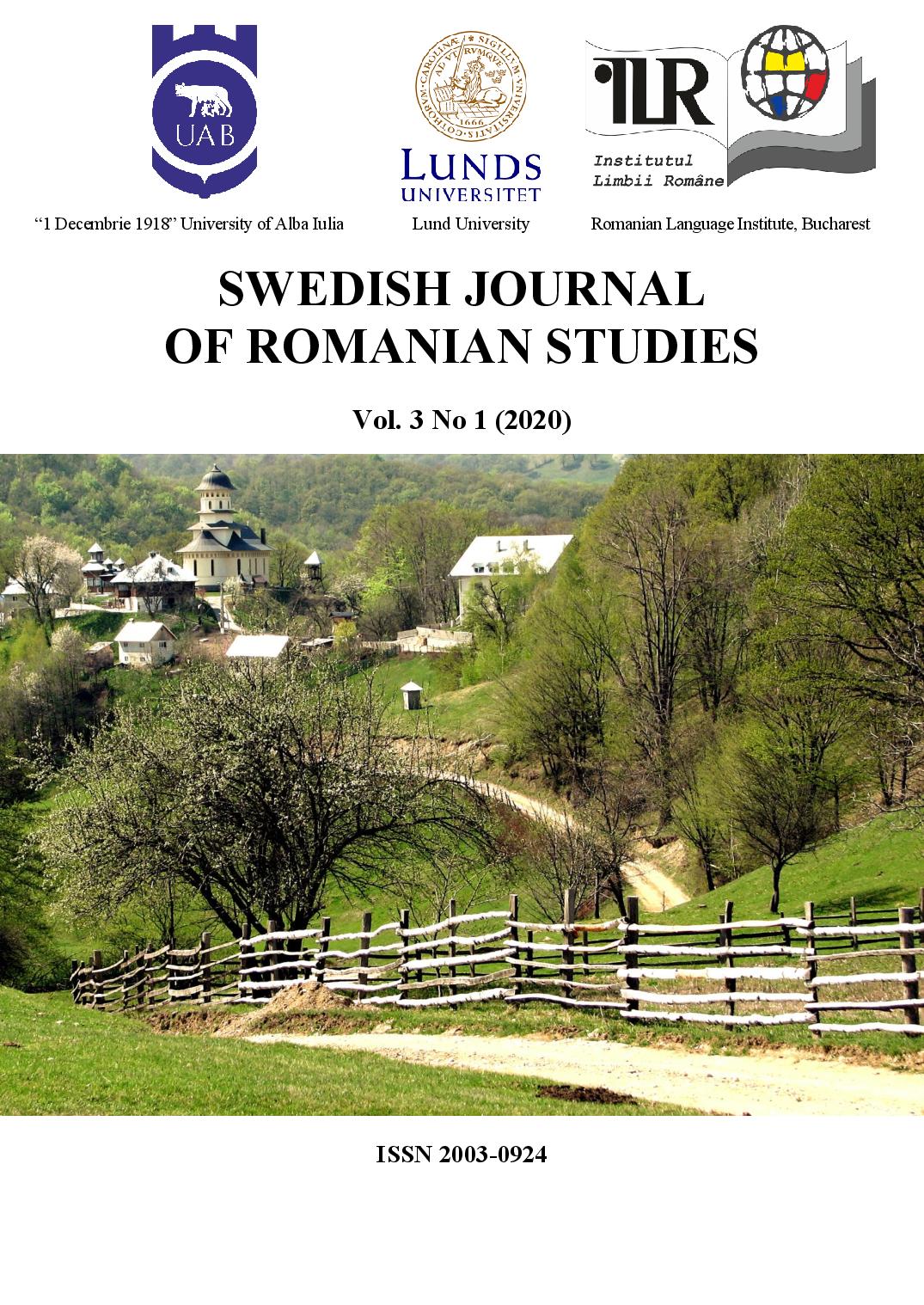Bizanțul în filtrul balcanic – poezie română din a doua jumătate a secolului XX / Byzantium in Balkanic filter – Romanian poetry in the second part of twentieth century
DOI:
https://doi.org/10.35824/sjrs.v3i1.20416Keywords:
Romanian Poetry; Balkanism; Ludic; Byzantium/Constantinople;Abstract
Talking about Balkanism in Romanian contemporary poetry means to betray, to a certain extent required by degradation or alteration, some literary themes and motifs. Finding ourselves in a geographical area of cultural contaminations, the influence of other peoples in Balkans comes naturally: the nostalgia of Byzantium perfection, continuous reporting at an ideal time, abstraction of the chronology. Balkan themes and motives in poetry are identifiable from the early writings of Romanian literature, including the folklore, with Anton Pann, the Vacarescu and Conachi poets – and their ludic descriptivism – , to Ion Barbu, who strikes a metaphysical note in the Balkan motifs, and later, in the second part of twentieth century, with the species of parody. The Romanian native receptivity allowed continuous assimilations without creating an unpleasant heterogeneous feeling. This openness has contributed decisively in a formative way to bring Byzantium on a new soil in a perfect and saturated array; the perfectibility is not possible anymore, so the failure was natural, in a degraded status – Constantinople. Oriental-Byzantine gravity becomes in Oriental-Balkan tragedy or comedy, balance slid to one extreme, sometime becoming ridiculous. Contemporary poetry does not express any more a true lament, but a kind of parody (in ludic poetry) or sheer contempt (in the solemn poetry). The Balkan intelligence is not critical, but creative, with the risk of perpetuating monstrous forms, beyond good and evil. Byzantium established itself through a double filter – for the East and for the West – influencing and being influenced, in turn. Romanian poetry has the full sequence of themes and aesthetic formulae, from tragic to comic, often switching rapidly from one edge to the other, taking into account the old Thracian solemn part, then the proud Byzantium and its absorption in Constantinople – all rolling in a series of formal expressions reflected in themes and vocabulary.
References
Alexandru, I. (1966). Infernul discutabil/ The Hell Questionable. București: Editura Tineretului.
Anghelescu, M. (1975). Literatura română și Orientul/ Romanian Literature and the Orient. București: Editura Minerva.
Baltag, C. (1983). Poeme/ Poems. București: Editura Eminescu.
Brumaru, E. (1974). Julien Ospitalierul/ Julien the Hospitable. București: Editura Cartea Românească.
Ciopraga, C. (1973). Personalitatea literaturii române/ The Romanian Literature Personality. Iași: Editura Junimea.
Dimov, L. (1973). ABC. București: Editura Cartea Românească.
Dimov, L. (1977). Dialectica vârstelor/ Dialectics Age. București: Editura Cartea Românească.
George, T. (1970). Balade singaporene/ Singaporean Ballds. București: Editura Cartea Românească.
Gheorghe, I. (1969). Cavalerul trac/ Thracian Knight. București: Editura Tineretului.
Mihadaș, T. (1972). Trecerea pragurilor/ Switching thresholds. București: Editura Cartea Românească.
Mutașcu, D. (1974). Scrisori bizantine/ Byzantine Letters. București: Editura Albatros.
Muthu, M. (1979). La marginea geometriei/ At the Edge of Geometry. Cluj-Napoca: Editura Dacia
Muthu, M. (1999). Dinspre Sud-Est/ From the Southeast Side, București: Editura Libra.
Obolensky, D. (2002). Un Commonwealth medieval: Bizanțul/ A Mediaval Commonwealth: Byzantium. București: Editura Corint.
Papu, E. (1983). Motive literare românești/Romanian Literary Motives. București: Editura Eminescu.
Popović, V. (2015). „Baladesc și oriental în poezia lui Ion Barbu”/”Baladic and Oriental in Ion Barbu’s Poetry”. În Studii de Știință și cultură. Vol. XI, nr. 2. Arad.
Downloads
Published
How to Cite
Issue
Section
License
Authors who publish with this journal agree to the following terms:
a. Authors retain copyright and grant the journal right of first publication with the work simultaneously licensed under a Creative Commons Attribution-NonCommercial 4.0 International License that allows others to share the work with an acknowledgement of the work's authorship and initial publication in this journal.
b. Authors are able to enter into separate, additional contractual arrangements for the non-exclusive distribution of the journal's published version of the work (e.g., post it to an institutional repository or publish it in a book), with an acknowledgement of its initial publication in this journal.
c. Authors are permitted and encouraged to post their work online (e.g., in institutional repositories or on their website) prior to and during the submission process, as it can lead to productive exchanges, as well as earlier and greater citation of published work (See The Effect of Open Access).

